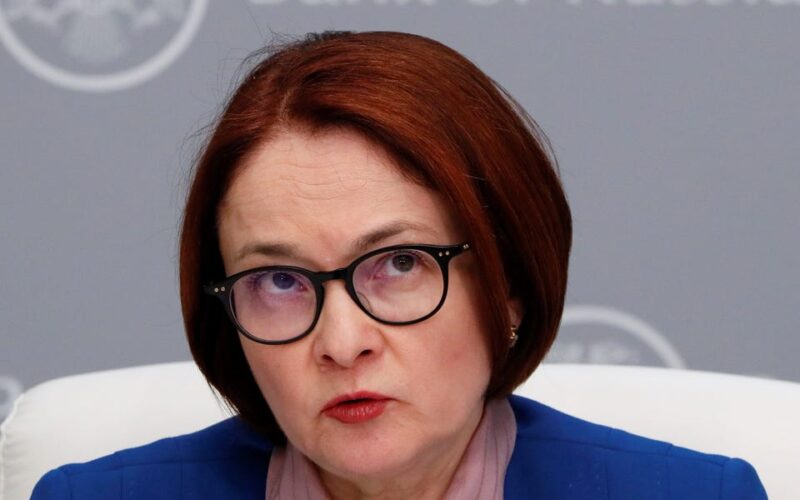- Russia’s central bank has been hiking its key interest rate to combat inflation.
- Top central banker Elvira Nabiullina says the fight is almost over, with inflation expected to slow.
- Business leaders have slammed Russia’s increasing interest rate, saying it restricted their growth.
A key Russian official said an economic turnaround is on the horizon.
Russia’s top central banker, Elvira Nabiullina, told the government yesterday that the country is approaching a “turning point” for inflation and interest rates, Moscow-based RBC Group reported.
Nabiullina told the State Duma that inflation should slow, though she did not specify when that would happen. Inflation hit 9.8% in September.
“We believe that our policy will reduce inflation to 4.5 to 5% next year, and then stabilize it near 4%. As it slows down, we will consider a gradual reduction in the key rate. If there are no additional external shocks, the reduction will begin next year,” she said.
She indicated that credit activity is slowing because of the higher rate but said some industries have continued borrowing.
Earlier this month, local officials and business leaders shared pessimistic economic outlooks for the coming year at an economic forum.
Soaring prices and a difficult outlook on the ground
Nabiullina’s comments come as the war in Ukraine approaches its three-year anniversary and inflation in Russia hits sky-high levels.
Last month, to tame prices, Russia’s central bank hiked its key interest rate to a record high of 21%. The bank said earlier this month that it could hike the key rate again at its next meeting in December.
The government continues to spend big on defense. In September, Russia hiked its 2025 national defense state spending by 25%, to over $145 billion, signaling its resolve to continue its war in Ukraine.
For ordinary Russians, the effects of inflation are being felt on the ground level. The cost of staples like butter and potatoes is up over 25% each this year.
The country is also seeing shortages in the workforce and a population crisis.
And while Nabiullina’s comments this week indicate a positive change is near, other leaders in Russia have expressed a gloomier economic outlook.
Andrei Klepach, the chief economist at the state-run development entity VEB.RF, predicted that, in the best case, economic growth would fall from an estimated 2.5% to around 2% in 2025. He also downgraded Russia’s fixed capital investment growth from 1.9% to 1%, blaming the central bank’s key rate.
Alexander Shokhin, the president of the Russian Union of Industrialists and Entrepreneurs, said high interest rates were forcing companies to delay investments.
Source link
lol

